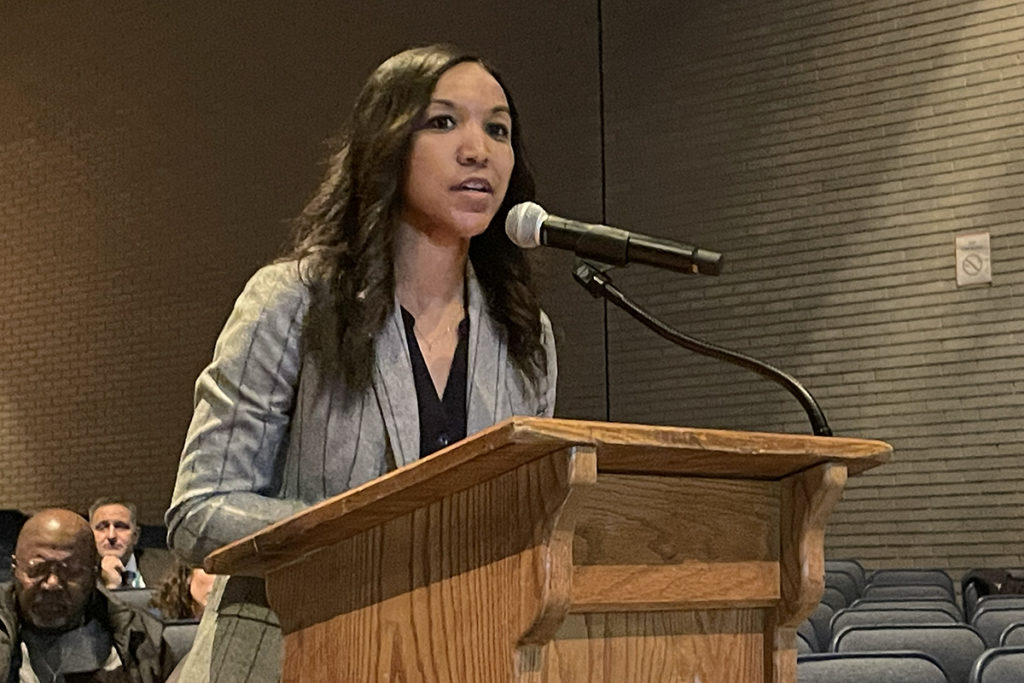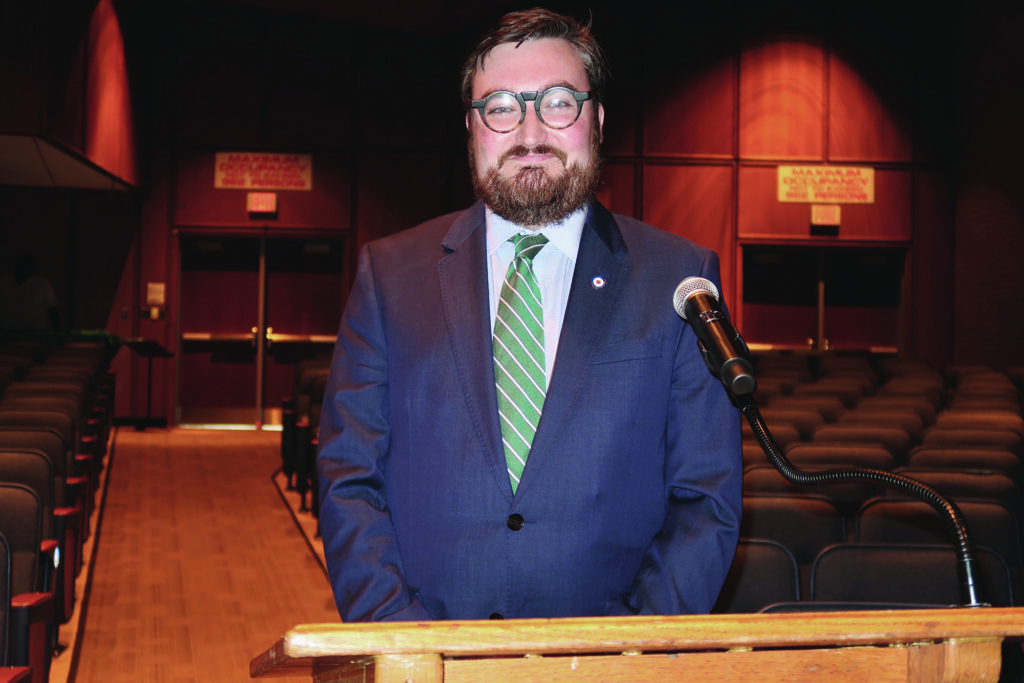Report: School district transportation department ‘significantly understaffed’

Riverhead Central School District’s department of transportation is “significantly understaffed,” according to an analysis conducted by Transpar, which presented its results to the Board of Education last Tuesday evening.
During a presentation to the school board, Micah Brassfield, director of advisory services, described Transpar as “the largest consulting and management company dedicated to student transportation.”
In analyzing the district’s transportation department, Transpar focused on two areas: route efficiency, which included a review of staffing, and electric vehicle feasibility.
The school board voted in October to hire Transpar as a response to related concerns raised by both students and parents raised at meetings since the school year started. Transpar was to be paid no more than $78,875 for its analysis, money the district expects to recoup, according to an agenda item, through “a grant or state aid.”

The route efficiency analysis included both regular district school bus routes and non-district routes that serve the Riverhead Charter School and local parochial schools.
In terms of staffing, the department is lacking at least three mechanics, two dedicated routers, one additional afternoon dispatcher and one dedicated field trip coordinator, according to Transpar’s report.
Recommendations from Transpar included conversations with stakeholders to start evaluating the beginning and end bell times and policies that dictate how students are provided transportation within the district.
“The time between tiers, primarily in the afternoon, is not conducive to achieving greater efficiency; discussion with public and non-public school leaders should begin immediately to determine what opportunities exist to better align bell time, while still meeting the instructional minute requirements of all students,” Ms. Brassfield’s presentation said.
She also suggested having discussion with the employees’ union.
“You’ve got dedicated bus drivers and monitors who want to provide high levels of service for students. They don’t want to feel as though they’re failing the community, they don’t want to feel as though they are rushing from one place to another to get to places on time. But they have to have some support from the district and from everyone collaborating together to devise a framework that allows us to best serve students but that’s also conducive to allowing transportation to operate safely and efficiently,” Ms. Brassfield said.
After the presentation, board member Christopher Dorr asked if the district was legally required to provide busing for private and charter schools or if it could require them provide their own.
“It comes to a point where we can’t afford to provide this transportation,” Mr. Dorr said.
Ms. Brassfield said Transpar takes state law requirements and local policy requirements into account.
“You’re required to provide it to students who live up to 15 miles within the district to a nonpublic school,” she said.
Mr. Dorr mentioned that transportation for sporting events involving district students has been contracted out. He asked if the district continues to contract out for sports transportation and if the district will have enough buses for the spring sports away games.
Rodney Asse, district assistant superintendent for business, responded that the district doesn’t currently have enough bus drivers and is looking at all options and doing the best it can to hire more drivers and explore other alternatives.
“We’ll have more information by the next board meeting so the board can consider having a possible contractor to help us provide all those services,” Mr. Asse said. “We are working logistics and also looking at a possible vendor to help us provide the services this winter and spring.”
Mr. Dorr asked Ms. Brassfield what the district can do with the current resources it has.
“If we’re talking about ‘Are there opportunities to become more efficient under the current state?’ the answer is that it’s extremely limited,” she said. “At max we could probably look at three to five routes where there may be time and capacity to consolidate but you are not talking about a true gain in efficiency and that is because the system is kept so constrained.”
No other board members spoke, and the presentation ended with a comment from Superintendent Augustine Tornatore.
“Riverhead is geographically the largest district on Long Island, so there are tremendous amounts of constraints that the transportation department does have in trying to deal with the amount of land that needs to be covered and with the increased traffic on the East End as well,” he said.
Transpar’s assessment of electric vehicle feasibility within the district examined potential fleet and infrastructure costs and recommended steps to be taken to help transition the district’s current fleet to electric in order to meet state mandates. According to the presentation, New York State wants all school districts to move toward achieving fully electric transportation by 2035.
The full presentation is available on the district website.








